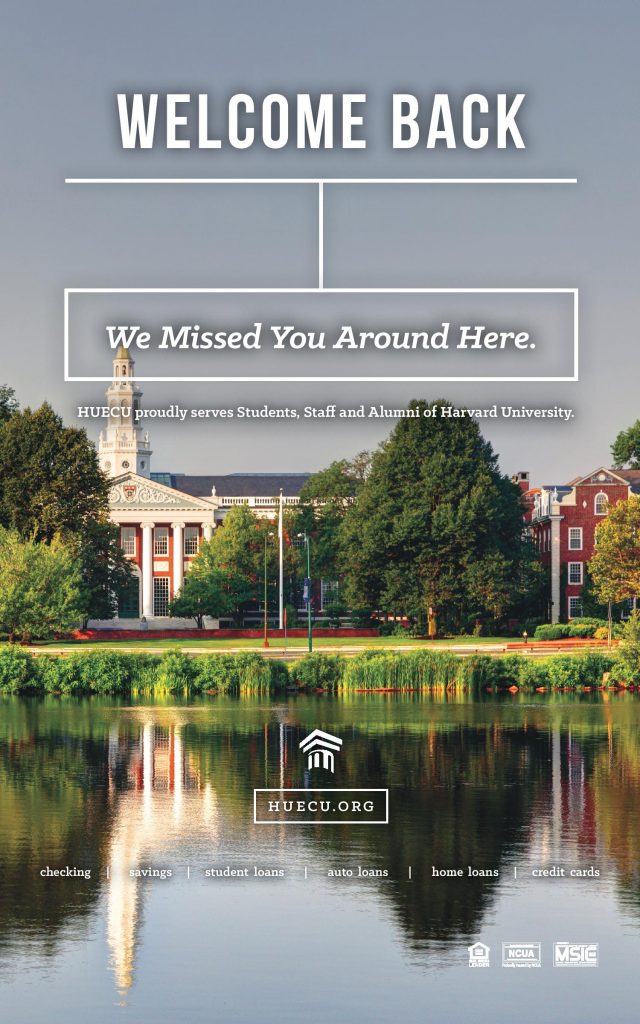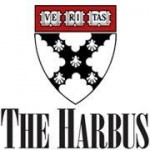
So you think you’ve made it. You struggled and climbed your way to the top of your five year career, only to open a letter one day which reads… ‘It’s a YES!’ Life could not feel any better. You’re an adult, about to embark on a transformational journey with inspirational classmates who you just know will become your best friends. Forget friends, these guys are going to be your intellectual soulmates. You’ve got it all figured out. Right?
Wrong.
Fast forward to the first day of HBS. You walk into a crowded Spangler dining hall for lunch – only to feel like Cady Heron from Mean Girls. Who are you supposed to sit with? Those blonde girls at the large center table sure do not look welcoming. Did you hear them calling themselves “Sororit-E?” What is that?
What about those P.E. bros off to the right? Why are they shouting so loudly? And why are they talking about skiing already… it’s August.
The truth is, you feel like you’ve regressed right back to that nerdy kid with braces in high school. It’s confusing. Surely we are all too old to be dealing with this type of environment? You look at your phone, only to find you have not been invited to that separate GroupMe that your seatmate seems to spend all class giggling about. How did it go so wrong so quickly? Maybe you should have gone to Yacht week. You’ve got The Yacht Week plague anyway…
While cliques are not unusual, what is strange is that everyone at Harvard Business School was, by definition, a geek. You had to be. You took your AP classes, you worried about your grades, you stacked up on extra-curriculars. Simply put – you cared. But now there’s a ranking order among the geeks.
So why, even in incredibly homogenous populations do humans segment themselves? Is there any science behind popularity?
Unsurprisingly, many of the studies conducted on popularity have been written in the context of high school. As adolescents spend less time with family and more time with friends, peer relationships become ever more important. By the time we reach HBS this is especially true. We are almost defined by our campus family. The importance of fitting in seems magnified and perspective on who we are and who we were before fades.
This can heavily impact self-perception, a factor which some psychologists argue is critical for social success and acceptance. The theory is that those who believe that they have great difficulty being liked by their peers are more likely to not be liked. They withdraw from interactions with the individuals that make them feel anxious and their attempts to engage become relatively unskilled. So, the feeling of ‘not fitting in’ is likely to be a self-fulfilling prophecy. 
Another theory is based on self-selection. Students like to self-select into groups who are similar. Similarity can be defined along many verticals, whether that is race, gender, interests and more subtly social status. While race and gender (hopefully) play a lesser role at HBS, nationality seems to. There is a divide between the international and American students. It’s subtle, and not necessarily negative, but it is there.
In a large group environment, your own status becomes defined by those you are grouped with. This explains the difference between the professional world (where disparate groups of people judge you based on your own personality) and a school environment (where who you are as an individual matters less than who you are as a group).
Finally, many empirical studies highlight that popularity is a function of perceived competency. The three key characteristics people tend to value are intelligence, group commitment and pro-sociality. In particular, influence is granted to those who make high quality comments. HBS is a bubble of similar people, but while we all have a right to be here (admissions reminds us, they make no mistakes) there are subtle differences between every student.
While hierarchical differences are a universal feature of social groups it is possible to dampen the effect through embedded social norms. Not only is it possible, mitigating cliques should also be something we as students strive to achieve. The reason? Many of us come to HBS precisely to learn from the diverse people around us. What is the point of joining with a homogenous group of friends only to leave with a network of similar people? Theoretically we are also all intelligent. While the GMAT and exams aren’t perfect we have all been screened several times by this point in life. So when someone makes what is perceived to be a ‘dumb’ comment in class it’s less likely they are truly stupid and more likely that they are sleep deprived / hungover / some combination of the two.
It all gets better after high Business School
Once you are out in the wild, out of the bubble of business school, it gets better. Suddenly it’s an even playing field. Find an HBS alumni in any city and you automatically have something in common. The subtle differences that divide us at school don’t exist because the numbers don’t permit it. When there are only a handful of HBS students in a place, suddenly we are all much friendlier to each other.
HBS can feel like high school again, and the dynamics at play certainly are the same. But it doesn’t have to be. So the next time you find yourself unsure or feeling marginalized remember to act confident. Remind yourself that you are a fully functioning human being in the professional world who has worth and value. Go out and meet people, it’s as much your fault for shying away from your peers as it is theirs for not including you. And if you find yourself hanging out with the same people, try to be inclusive and less judgmental. If HBS is a Game of Networks, you might just find the diverse group of friends you graduate with is the strongest network of them all.
Final thought. If you are considering running for section leadership, but don’t find addressing these issues palatable, do us all (and yourself) a favor. Don’t run.
________________________________



